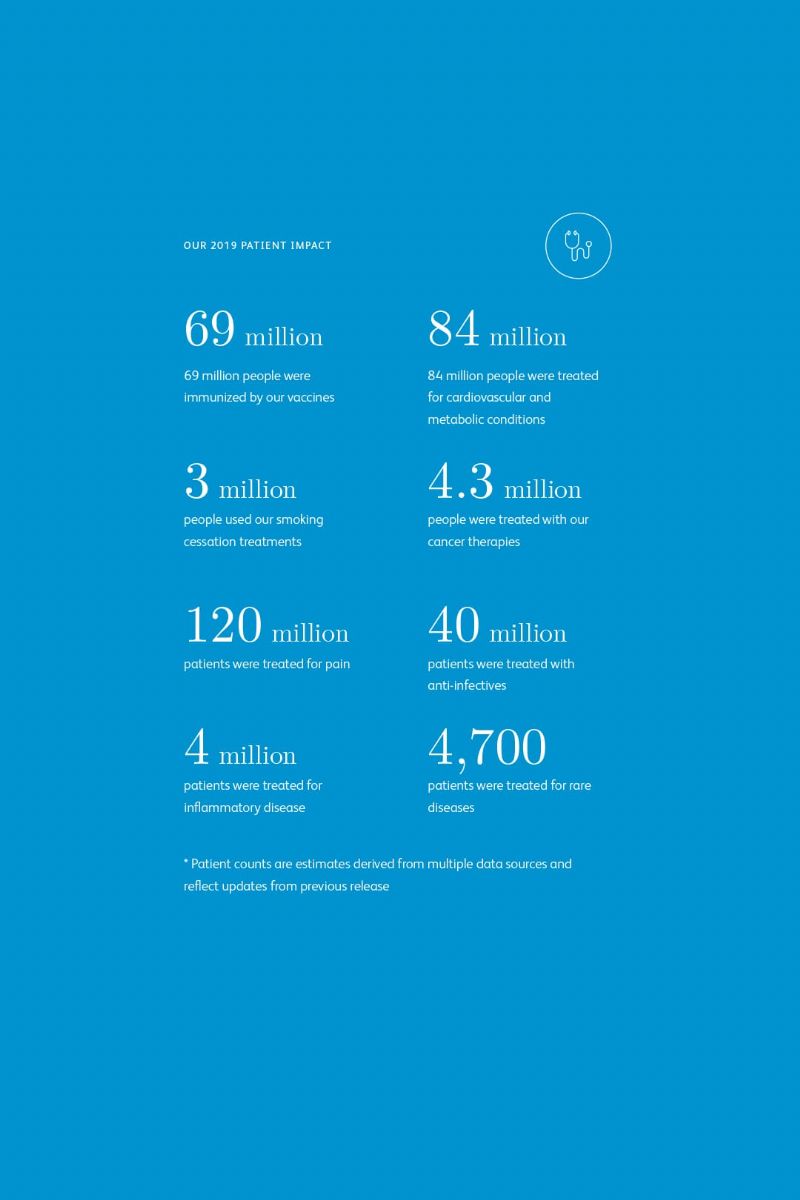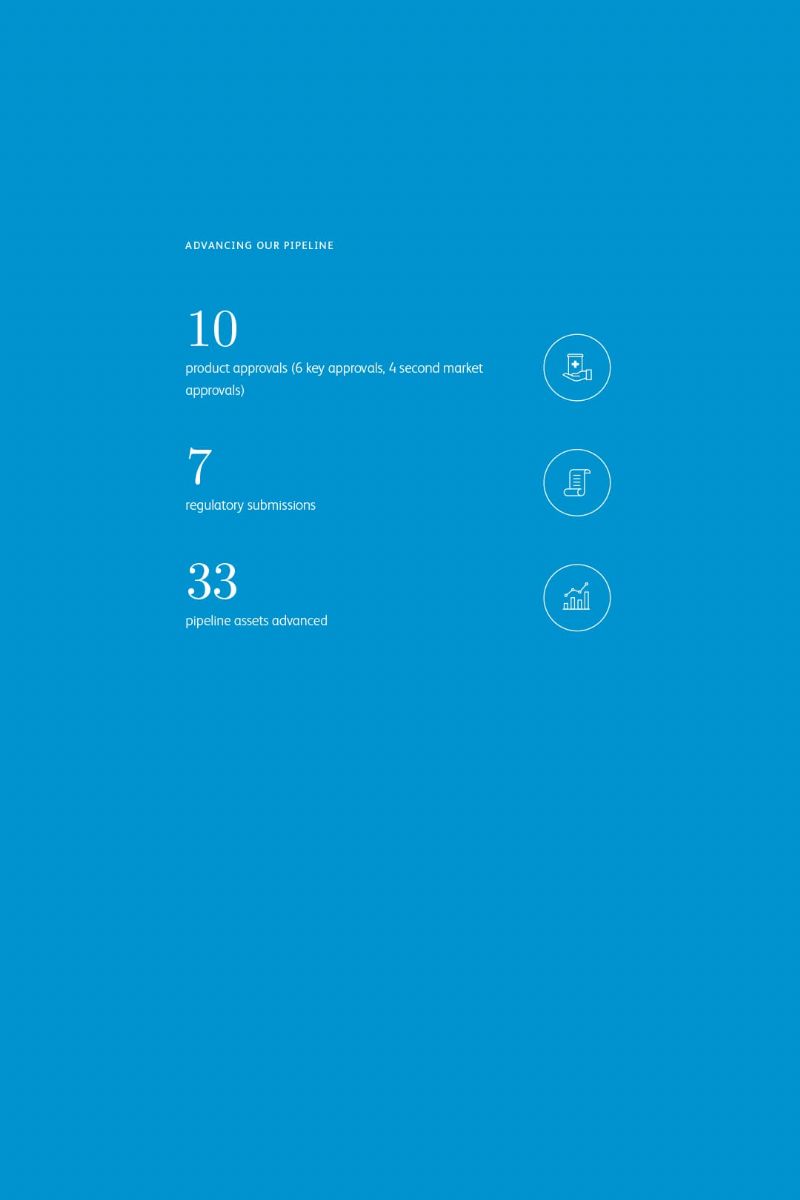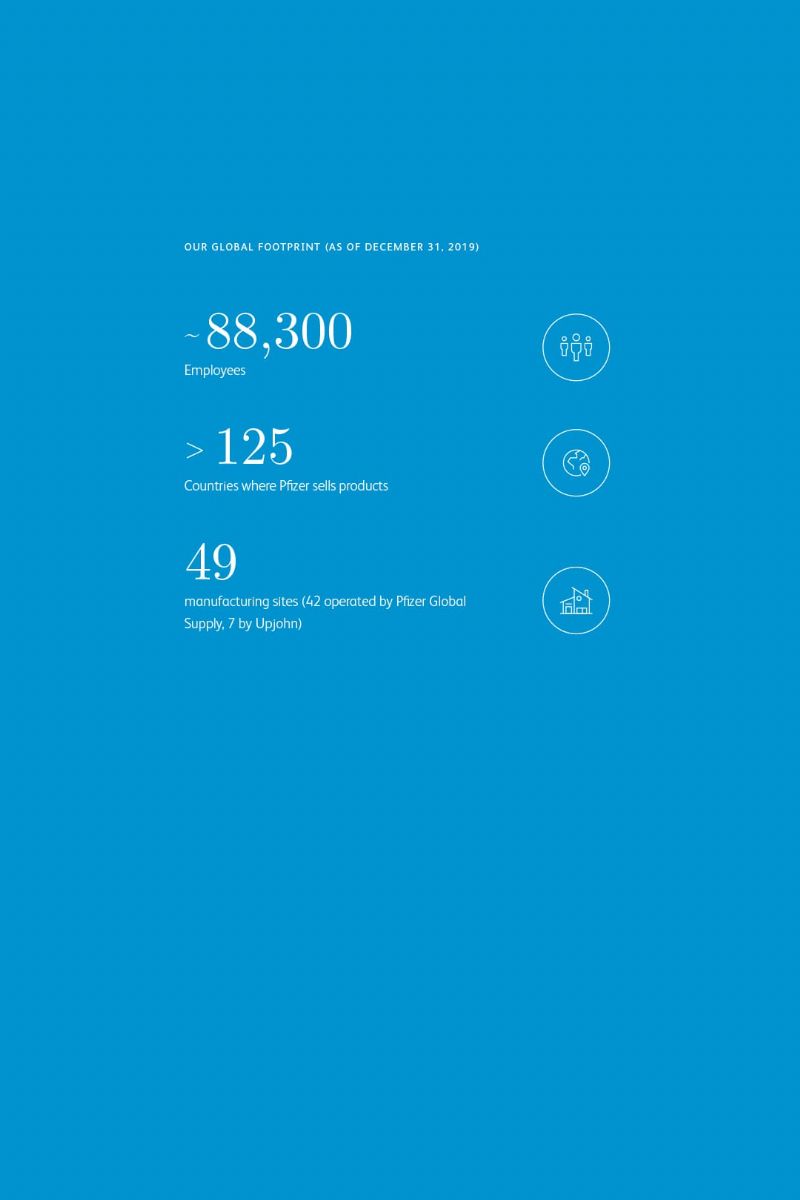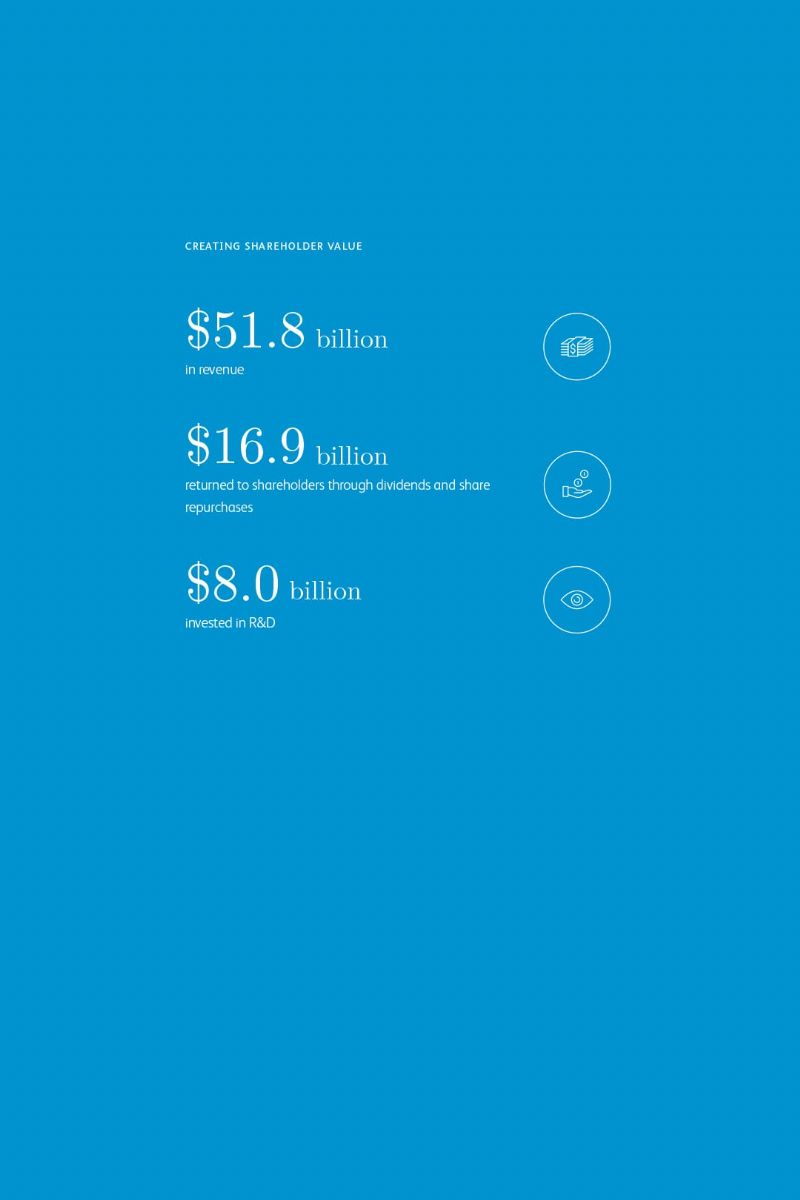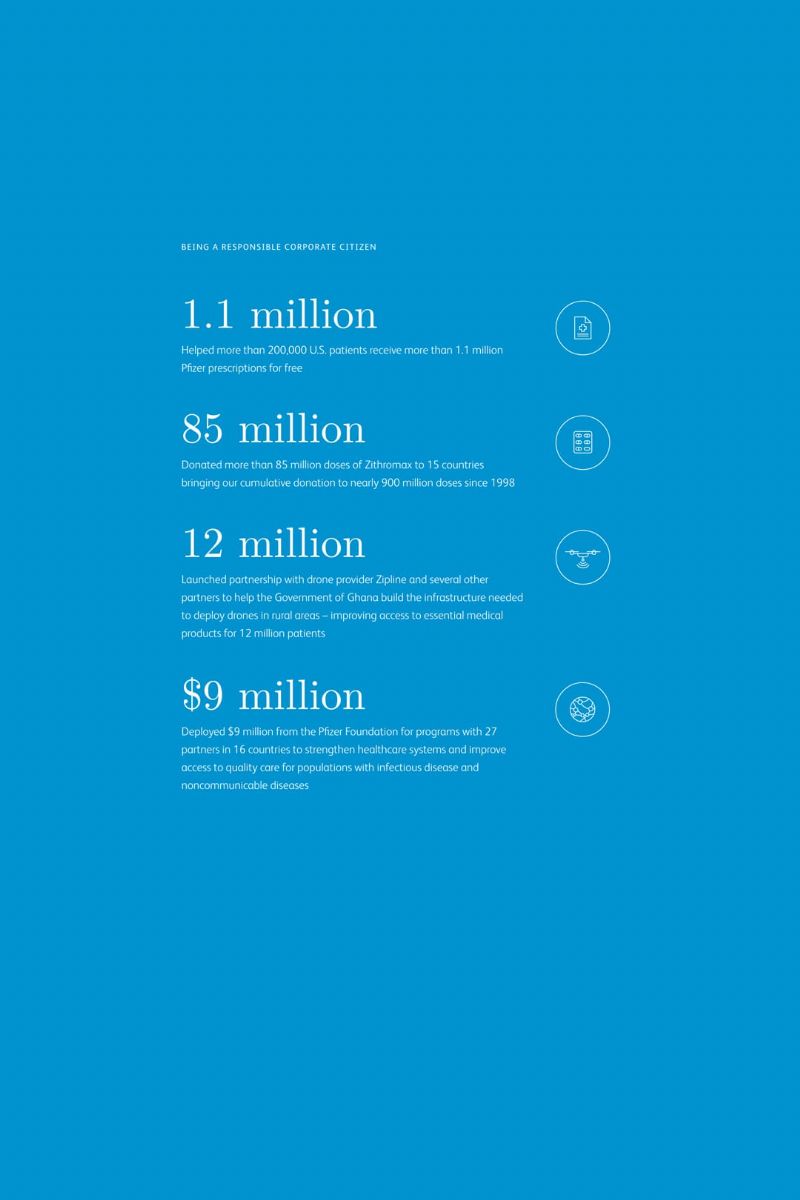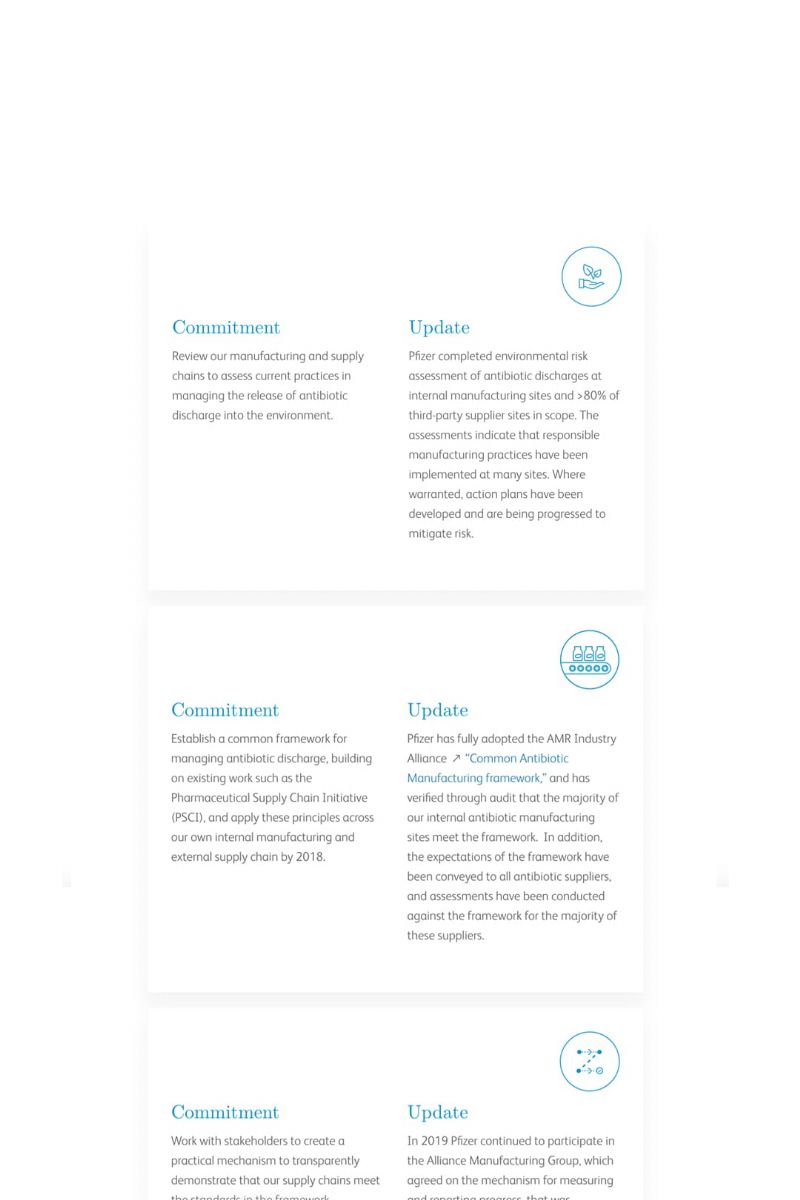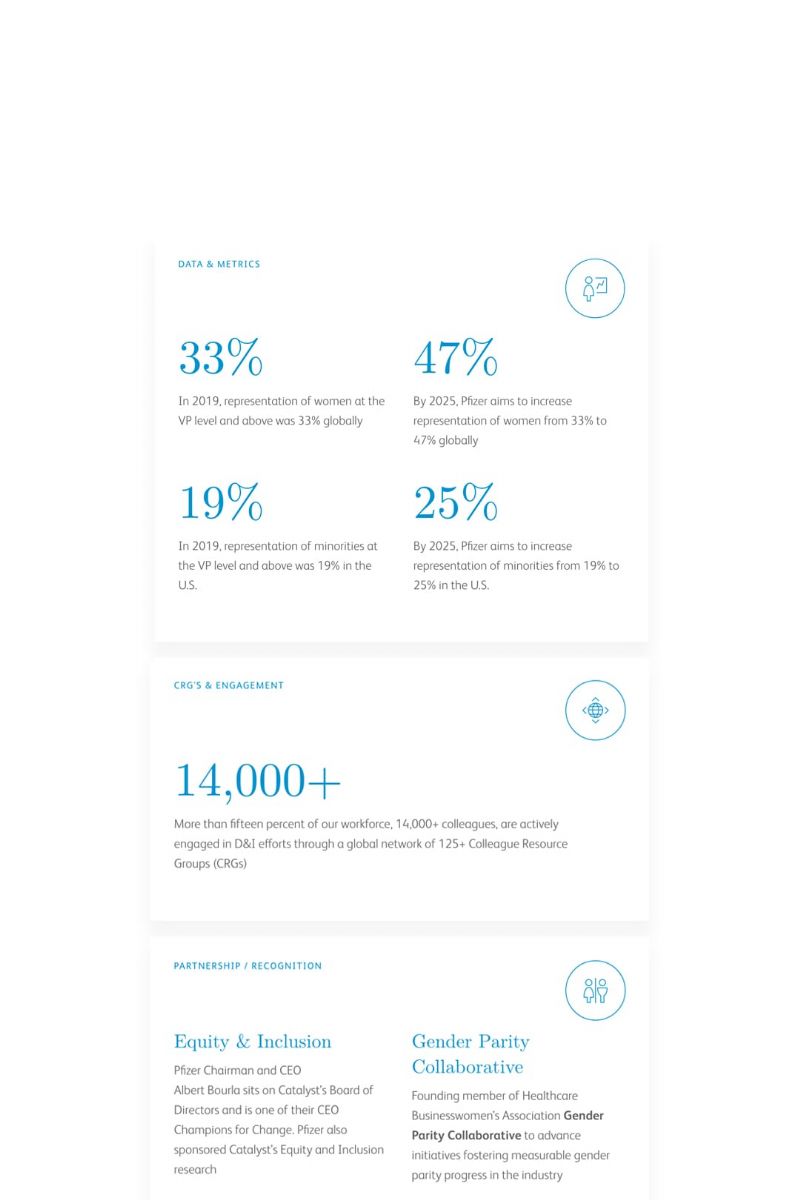

Leading the Conversation
As an innovator in health care, one of Pfizer’s goals is to lead the conversation. In order to meet this goal, Pfizer is boldly working to achieve excellence in the following three ways:
The first speaks to the central role that patients play in everything we do – we are taking concrete steps to be the most patient-centric company.
The second acknowledges the policy barriers that delay or prevent access to innovative medicines – we want to drive pro-innovation, pro-patient policies to improve access and reimbursement in the countries in which we operate.
The final pillar underscores the fact that we are a science-based company with a compelling narrative on the value of our science – we are working to raise the visibility of our scientific contributions to society in a significant way.
Changing Patient Demographics
Non-communicable diseases like cancer, cardiovascular disease and diabetes are difficult-to-treat conditions that are often associated with lifestyle factors, namely diet and exercise. They are also linked to urbanization and rates of life expectancy around the world.
We recognize the link between human health and these changing demographics. As the world’s middle class grows at an unprecedented rate, increased consumption leads to a larger carbon footprint. At Pfizer, we have publicly recognized the impact of climate change on human health and have made commitments to mitigate our impact, including a reduction in greenhouse gas emissions.
Pfizer has incorporated the Task Force for Climate-Related Financial Disclosures framework in 2019. Clickhere to learn more about meeting our environmental sustainability goals.
Supporting Universal Health Coverage (UHC)
UHC aims to ensure that all individuals have access to the health care they need without suffering financial hardship. At least half of the world’s population does not have full coverage of essential health services, and over 100 million families are pushed into extreme poverty each year because of out-of-pocket spending on health.1 Investment in health care not only improves patient quality of life, but also can improve productivity, bring skill-intensive jobs and expand economic opportunity.
Pfizer believes in the promise of UHC. We agree that all individuals and communities – regardless of race, ethnicity, gender, income or location – should have access to meaningful, affordable health care options. As an innovative pharmaceutical company, we want to be active partners and believe we can contribute in important ways, including:
Harnessing the power of science – We will continue to innovate not only to meet changing burdens of disease, but also to tailor our products to better suit local conditions.
Tackling affordability and access head on – We are taking a series of actions to dramatically increase the number of patients who have access to our medicines by 2023.
Advancing local innovation that progresses UHC – We support local entrepreneurs in developing countries working on UHC solutions by providing seed funding, expertise and access to our networks.2 We can partner to bring promising innovations to scale.
Empowering patients, health-workers and communities – We dedicate significant resources to disease awareness, prevention campaigns and health literacy – critical pillars for UHC that should be prioritized.
Engaging in the policy debate – We partner with a broad range of stakeholders, bringing fresh ideas to the table, and are open to constructive feedback and robust debate. We are a proud, active member of the UHC2030, a group of private sector companies committed to advancing UHC.
We recognize that access to safe, effective, quality and affordable medicines and vaccines is a critical component of UHC and that, as an innovative pharmaceutical company, we have an important role to play in helping to deliver on this target.
1
2
https://www.pfizer.com/files/investors/financial_reports/annual_reports/2018/our-culture-our-purpose/our-purpose/video-catalyzing-innovations-in-global-health/index.html?ref=home








